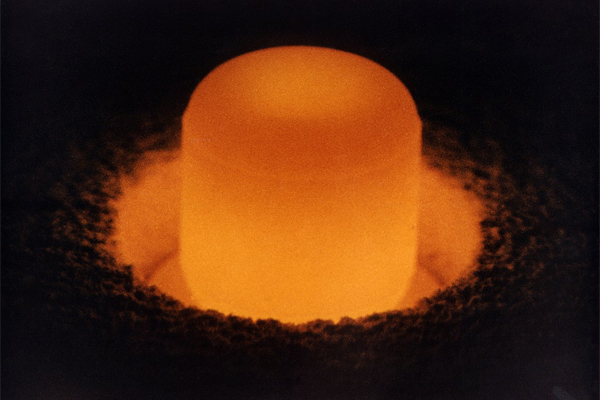CONNECT conducts basic and applied research that utilizes experimental and computational technologies. See our focus areas below.

Artificial Intelligence and Computational Methods
Identity, develop, verify and validate machine learning and artificial intelligence tools and algorithms that may be used for proliferation data collection and decision making to analyze risks of the nuclear fuel cycle and to identify key sources of information.

Fissionable Fuels and Forensics
Conduct fundamental, materials science investigations of fissionable fuel forms, utilizing depleted uranium bearing compounds, and their non-radiological analogues, referred to here as surrogates. These materials will be processed using a variety of techniques and systematically hydrated and/or contaminated to represent materials of interest at various stages of the nuclear fuel cycle.
Develop new, improve existing, and combine methods for characterization of materials in order to develop enabling technologies for nuclear material identification specific to fuel cycle stages and processes. These efforts are referred to in this proposal as "science of signatures." Specifically, investigators will advance and integrate radiochemical and mass and optical spectroscopy methods in nuclear forensics.

Nuclear and Nonproliferation Policy
Students develop a broader understanding and appreciation of the policy and political environment surrounding nuclear security – a necessity for the advancement of developing technologies. Fundamental discoveries of detection systems are informed by understanding the policy and economics that drive the countries of the world. A solid exposure to public policy concerns underlying nuclear security is crucial for students moving forward into evermore complex careers in policymaking.
Summer Undergraduate Research Experience
**APPLICATION DEADLINE: MARCH 21, 2026** To apply: (1) Complete the online application, (2) email unofficial or official transcripts to Monica Carreon, and (3) have two recommenders send letters to Monica Carreon. Indicate your name in the email subject line.


